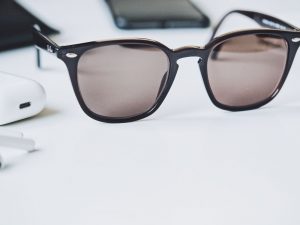
The best foods for eye health
Organisations such as The Association of Optometrists (AOP) and The NHS continue to recommend nutrients for eye health based on the AREDS reports. The AREDS

In this section you can access useful information that we hope will help you find answers to your own questions based on some of the most common questions that we have received from our patients over the years. You can also access a number of informative articles on how to keep your eyes healthy or choose the right visual or style solution for your specific needs.
Please, feel free to share this content with your friends and family on social media.

Organisations such as The Association of Optometrists (AOP) and The NHS continue to recommend nutrients for eye health based on the AREDS reports. The AREDS

Now that the warm weather is upon us you want to start thinking about sunglasses. But with so many different designs out there, how do

Aviator sunglasses are a style of sunglasses that were developed by Bausch & Lomb. The original Bausch & Lomb design is now marketed as Ray-Ban
Adults and children should have their eyes examined once a year. Contact lens patients should have a complete eye exam once a year and a quick follow-up at 6 months.
When your prescription is no longer providing adequate correction, you should change it. A routine yearly eye exam will help you determine the best prescription for your specific situation.
Dry eyes are caused by a lack of adequate tears, a blend of water, mucus, and fatty oils, in the eyes. Tears help keep the surface of your eyes smooth, your vision clear, and ward off infection. Decreased tear production can be an issue if you are older than 50, have had laser eye surgery such as LASIK, are a post-menopausal woman, or have a medical condition such as diabetes, arthritis, lupus, or thyroid disorders. Some medications can also cause dry eyes, as does extensive work outdoors or indoors on a computer.
Yes. Glasses should be updated for times when you do not want to wear the contacts and for cases when you can not wear contacts, such as any eye infection, injury or loss of a lens. Although you have the convenience of not needing your glasses to see, a pair of glasses should be available for times when you may not feel like wearing you lenses. Other reasons for having a pair of glasses are if you tear a lens, seasonal allergies that may affect your ability to wear you lenses or if you are traveling and lose a lens.
Yes. Contact lenses that correct astigmatism are available in both soft and hard lenses and are now available in a disposable wearing schedule.
The natural lens in the eye starts aging and this decreases the ability to focus on near objects steadily. This condition is called presbyopia and usually occurs near the age of 40.
One of the most important things a parent can do to help their children succeed in school is to take them for a comprehensive eye exam. Vision screenings are not diagnostic and typically can only find a small portion of the vision problems in children. Comprehensive eye exams are necessary to detect problems that a simple screening can miss, such as eye coordination, lazy eye, and near and farsightedness.
Extended, unprotected exposure to the sun’s ultraviolet rays can cause serious eye damage, including macular degeneration, cataracts, and photokeratitis, which can cause temporary vision loss. Protect your eyes from harm with sunglasses that block 100 percent of UV rays. Because of their full range of coverage, wraparound sunglasses provide the most protection.
A polarized lens is a sunglass lens that reduces glare. It has a special filter that blocks highly reflected light. A polarized lens is a great overall sunglass and especially great for outdoor sports, water sports , snow and for all who are light sensitive. It blocks UV rays and provides excellent sun protection for the eye. Occasionally, a polarized lens is not desired, such as with downhill skiing, where it is important to see shadows in the snow and for someone who needs to view LCD displays which can look distorted with a polarized lens.
Listed below are some of the most of the signs that parents and teachers can look for to help identify a vision problem. If you notice any of the below please schedule an appointment straightaway.